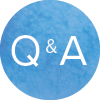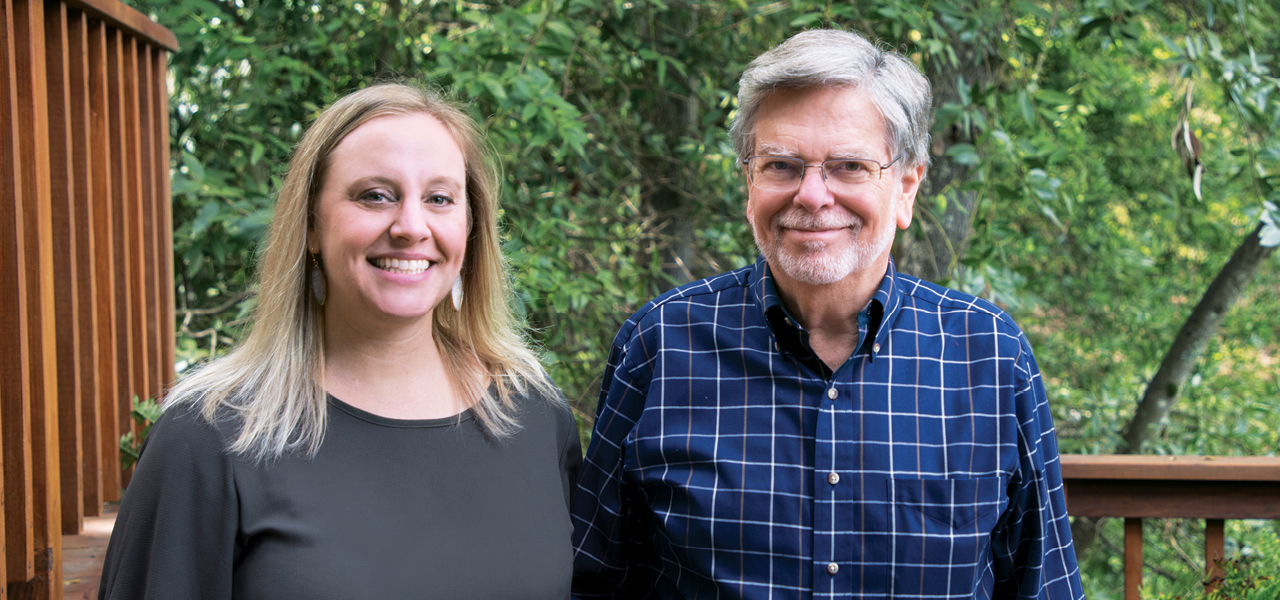Like father, like daughter
Four decades after Stephen Whitgob (M.D., ’72) graduated from the UC Davis School of Medicine’s inaugural class, his daughter Emily Whitgob (M.D., ’12) followed suit. Both have played unique roles in shaping health education at UC Davis and in improving clinical care overall.
It had been five days since the interview. It was 1967 and the white envelope was addressed to Stephen Whitgob. The contents felt like a paperweight. It was a rare occurrence to apply to only one medical school, so there had been several applications, but UC Davis topped the priority list because of the school’s declared focus on primary care.
The blue-and-gold sealed letter either contained expectancies of the future or the prospect of rejection. As Whitgob began to rip open the parcel, a ripple of excitement and fear rushed through him. “Congratulations” was the letter’s title, and this simple statement opened the door to a career in medicine.
Graduating from UC Berkeley and entering the brand new UC Davis School of Medicine 50 years ago was transformative. As Whitgob began his first semester as a medical student in the spring of ’67, the fledgling school — then based in Davis itself — offered an innovative new curriculum designed to provide both a humanistic and scientific grasp of medicine. Whitgob and other classmates would actually help to shape the program, while gaining experiences and bonds that he still reflects on today.
“The faculty seemed to sincerely want student input on the curriculum, and they actually hosted meetings frequently to solicit it,” he recalled. “And the student body was small, so it was conducive for many of us to know each other well — and that led to lifelong friendships.”
After four years and countless science classes and clinical hours, UC Davis had developed a family medicine physician who would go on to help thousands of people directly, and many more through service and policy work. Whitgob devoted his time by serving as president of the local chapter for the California Academy of Family Physicians and more than a decade on the board of a private nonprofit that supports developmentally disabled children and adults.
This legacy of service and making a difference was eventually passed down to his daughters, Emily and younger sister Julia. Steve Whitgob would take them on rounds with him when they were young, and the family often discussed patient cases, diseases and disease prevention around the dinner table.
However, Emily Whitgob’s own career journey didn’t start with health care. Her early passion was teaching grade school, with a focus on special education and a desire to create opportunities for children with and without disabilities to learn in the same schools and classrooms. Emily was lucky to have nurturing and gratifying school experiences throughout childhood — while her sisters were not — and part of her intention is to encourage the success and empowerment of every child.
Once it became apparent those goals would require broader changes than any one teacher could produce, Emily expressed her frustrations to her parents. The conversation sparked an interest in a career in the field of developmental-behavioral pediatrics.
“It seemed I could harness the power of being a physician and use it to work on the same inclusion goals I had while teaching,” Emily said.
After investigating how a combination of these two roles could develop a stronger partnership with families and their communities, Emily began applying to medical schools. Following in her father’s footsteps, she applied to UC Davis.
Thirty-five years after her father graduated, Emily received her UC Davis School of Medicine acceptance phone call. In the summer of 2008 she began learning from some of the same professors her father had, and walking the same hospital corridors.
“My dad always spoke of it (UC Davis) so fondly — he had a wonderful time, and appreciated their innovative approach to education,” she said. “He felt that since the school was new when he got there, he was able to have a voice in what he learned and how it was taught — and I wanted that.”
Emily’s med school experience provided exceptional mentors and the skills to continue her research about how to better serve children with disabilities. She served on multiple committees, including the accreditation committee for U.S. Medical Schools (LCME), and worked with the UC Davis MIND Institute’s Robin Hansen (M.D., ’77) to help create an elective course where medical students could learn about the experiences of people with disabilities.
After finding her niche at UC Davis, Emily went on to residency at Stanford University Medical Center. She is currently completing a fellowship in the school’s developmental-behavioral pediatrics division and has presented her work at national conferences, including a side study about discrimination in medicine that gained national attention (see sidebar).
She starts work at the Santa Clara Valley Health System as a developmental behavioral pediatrician this August.
“I knew medicine would be a rewarding career for her and that she would be an excellent physician,” Steve said. “She would be able to make the world a better place.”
 The UC Davis
The UC Davis
School of Medicine,
circa 1968 vs 2008
Q. Steve, you attended a brand-new medical school in the late 1960s, a time of major social change. Did you tell Emily what things were like in those days at UC Davis School of Medicine?
Sure I did — and I think she got tired of hearing some of the stories, even though she listened politely. One story I remember telling her was how I thought that by joining a group of students who stayed out of classes for a day to protest the Vietnam War, I would be helping to end the war. It didn’t work.
Q. Emily, what did you think of his stories?
The stories that stood out the most are about patient encounters, and faculty and senior residents who looked after him. He also told me a story about the day leukemia was a topic of a lecture. It was the day that Neil Armstrong walked on the moon. My dad missed the lecture that day to watch it all on TV.
Q. Emily, what did you find at the UC Davis School of Medicine of the 2000s compared to the one your father described from the late ʼ60s?
One theme remains the same — meaningful patient experiences. Technology is absolutely something that’s changed. If the Apollo mission had happened in the 2000s, then my dad could have watched a recording of the leukemia lecture at a different time.
Q. What advice would each of you give a medical student today?
Steve: Work hard and have fun. As our school was starting, we didn’t yet have a full complement of full-time faculty, and the school brought in excellent practicing physicians from the surrounding community to fill in. As a medical student, I really didn’t fully understand it when my professors and these community physicians told us that it’s a privilege to be in this profession, and that anyone in it should consider themselves very lucky. That understanding came with time, and I feel it very strongly.
Emily: I think everyone finds at least some aspect of medical school hard; my advice would be that it gets better over time. There are so many opportunities within medicine to find your niche. It is so fulfilling to enjoy going to work every day.


